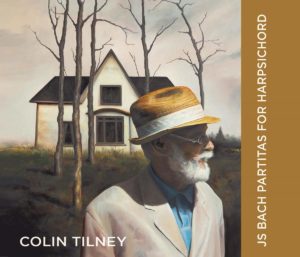Colin Tilney’s tempos in Bach’s music have considerably slowed down with age (the harpsichordist is 87 at this writing), and he never was a sprinter to begin with. As a consequence, his Six Partitas rarely reflect the music’s dance roots. Indeed, movements dependent on rhythmic momentum, like the Fifth Partita’s Praeambulum, No. 6’s Air, No. 3’s Courante, and all of the Gigues often leave a ponderous impression. Rhythmic amorphousness prevails in No. 1’s Praeludium, where Tilney’s loosely held duple meter soon settles into a tuple meter groove. However, Tilney retains his masterful legato finger technique, and the ability to make the quills on his resplendently engineered harpsichord sing, as No. 1’s Sarabande, No. 2’s Sinfonia, and No. 4’s sensitively ornamented Allemande bear out.
Given the performances’ leisurely trajectory, it’s not surprising that they spill over to three CDs rather than the usual two. While my reference Bach Partitas on harpsichord remain those of Trevor Pinnock (Hänssler), Igor Kipnis (Warner Classics), and Jory Vinikour (Sono Luminus), the sheer beauty that Tilney creates in Bach’s more reflective movements may well be worth the price of admission.
































